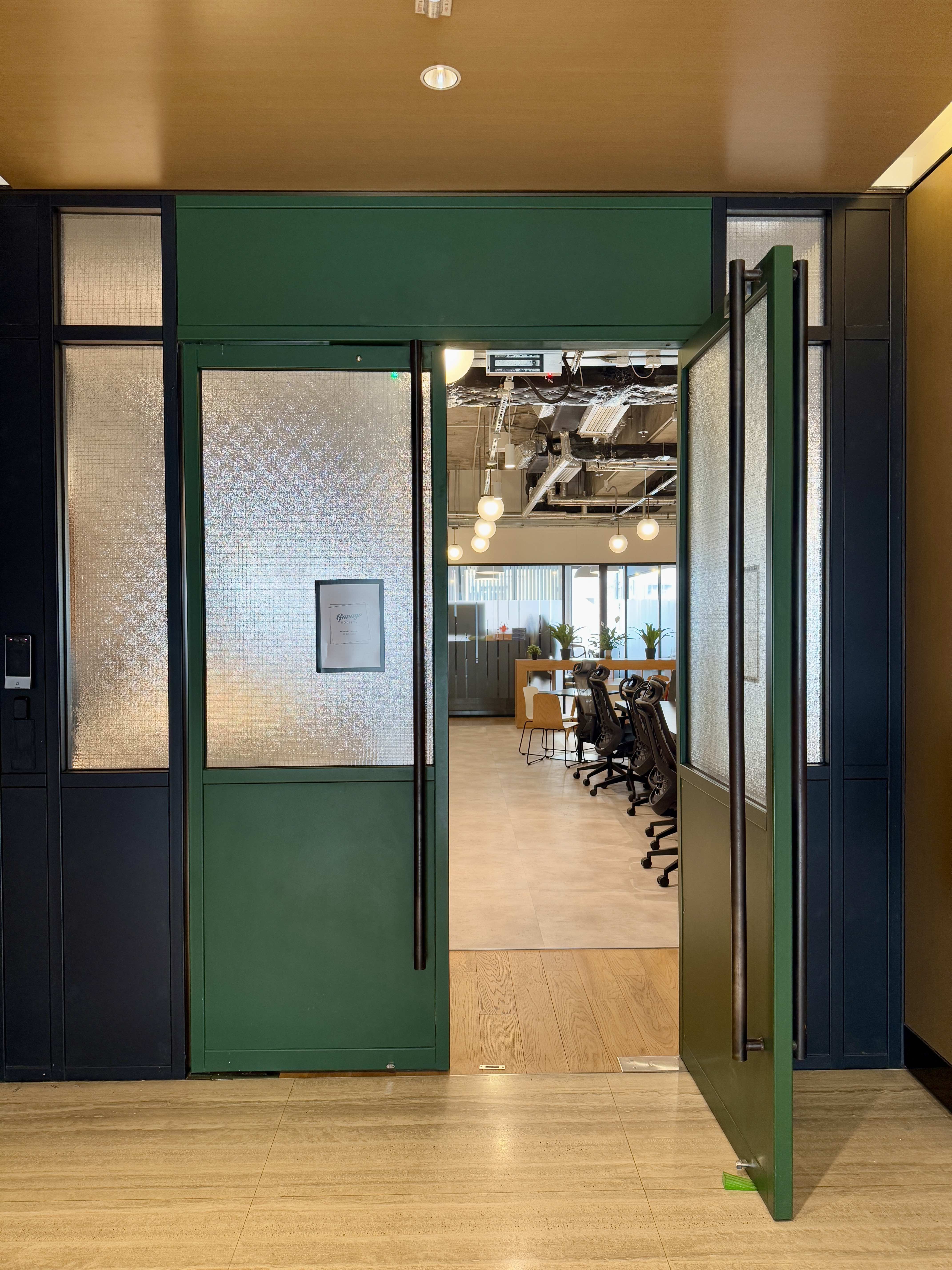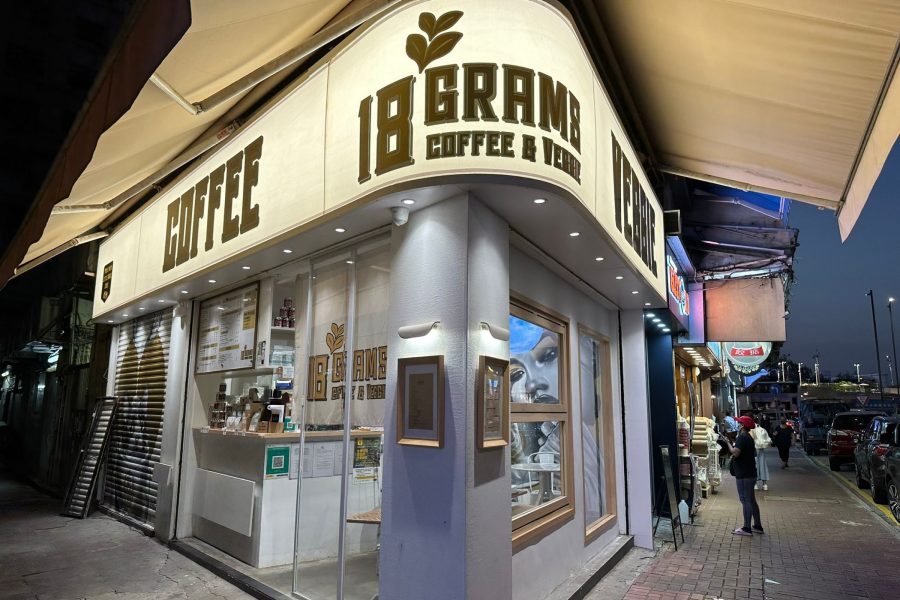LOCATIONS
Hong Kong
-
Facebook
-
LinkedIn
-
Instagram
-
Youtube
Author: Ching Lam Ip, Programme & Marketing Lead, Garage Society
As part of our #BeTheChange series, we sit down and discuss how people and business have evolved, with change-makers in our Garage Community.
This week, we sit down with Michelle Hong, co-founder of Rooftop Republic, a social enterprise on a mission to introduce the joys of urban farming to the city folk of Hong Kong.
Rooftop Republic has been part of the Garage Community since 2018, and they have a rooftop farm on the terrace of our Wan Chai Lockhart space.
It was great to catch up with Michelle over sustainability, social entrepreneurship, and the joys of growing your own food.
MICHELLE HONG: Rooftop Republic is a social enterprise, established in 2015. Our vision is for cities to become more sustainable, by connecting city dwellers more deeply with their food.
The way we achieve this is by bringing the concept of organic farming into the city.
Hong Kong relies heavily on imports for our food supply, including over 90% of our vegetables. The only time we give it much thought is when we’re grocery shopping, or when it eventually appears on our plates.
Even if we logically know how food is grown, we don’t fully understand the process. For example, did you know that it takes about four months for an ear of corn to grow to full size?
Most people don’t give it much thought beyond the few minutes it takes to eat it. After I started growing my own food, my whole perception changed, and I was very transformed.
Michelle: The three of us come from very different backgrounds. Pol was from the NGO and education sector. Andrew, who is also my husband, has a civil engineering background. As for me, I used to be in advertising.
Our skill sets complement each other very well.
It started about 10 years ago when Andrew and Pol met at a social enterprise mixer. They started a passion project together, centred around how to grow your own food.
This was before Rooftop Republic, and that experience showed us how important it is for people to know where food comes from
Back then, I still had my full-time job in advertising, so I was just supporting on the weekends. Over time I found that this work impacted me a lot.
When we had the opportunity to speak with local farmers, their stories really resonated with me.
At first, I had my concerns if I were to go into Rooftop Republic full time. Especially since Andrew is my husband, it meant that Rooftop would truly take up our entire lives.
In 2015 we eventually took the leap, and I’m thankful that we did. We forged our own paths, and it’s very fulfilling to do something we believe in.
Michelle: It was very challenging. Farming is such a tactile activity, you really need to be there in person to experience, touch and smell the veggies and soil.
A lot of our workshops were cancelled at the time. It had a financial impact, so we were quite stressed out. Fortunately, our team are all very passionate about what we do, so we were driven to find solutions.
The biggest change we made was revamping our online store. A lot of us were actively searching for ways to connect with nature within the confines of our homes, so we put a lot more effort into creating and selling our grow kits, seed subscriptions and gift sets.
It’s not a perfect alternative, but it’s a good start.
We also worked hard to turn our in-person workshops into viable virtual experiences.
Many corporates came to us, seeking ways to engage their zoom-fatigued teams. We created lunch and learn sessions, where we would send each employee a grow kit, and plant it together over a virtual workshop.
The best part was that a lot of family members and kids would join in as well, so it was a great interactive experience to connect with your colleagues over something other than work!
Michelle: First and foremost, a social enterprise is a business, so we need a strong business model to survive. At the same time, we’re also working really hard to generate positive social and environmental impact through our work.
I do look forward to seeing more open platforms for knowledge sharing within the social enterprise community - be it for fund-raising, managing teams and finance, or simply providing moral support to one another, especially during this time where we were all navigating new challenges in unique ways.
I also believe that finding better ways to capture and measure our impact is one of the strongest things a social enterprise can do for its business in the next five years.
I would love to see a universally recognised methodology or metric for companies to measure and calculate their impact. There are lots of good methodologies, but each with different strengths, benchmarks and rulers.
This makes it very difficult to communicate our impact to different stakeholders - impact investors, funding bodies, or even just potential clients.
Michelle: I do hold a belief that we are sojourners of this planet: none of the resources really belong to us but we have a responsibility to steward them wisely.
As with someone who is just passing through as a guest, we should tread lightly. Personally, this means doing my best to not use more resources than I need.
With that said, I understand that this stance may seem too little too late for some. We’ve already done so much damage - simply “treading lightly” cannot reverse that.
But I still think it’s a good starting point for being more mindful of our daily decisions.
Sustainability has become such a buzzword. I believe that sustainability is less to do with crossing off a few “eco-friendly” checkboxes, and more to do with challenging your impact on the world.
Really think about how to extend the lifespan of every item you own, how to grow food in a way that protects our resources and biodiversity.
Michelle: I definitely love being outside instead of being inside an office all day!
But if I were to describe the most rewarding part, it would be those moments when I hear someone exclaim, “Oh my goodness. Growing food is SO difficult!”, because that’s when I know our message has truly resonated with someone.
It’s a sign that their mindset has shifted.
As for the biggest challenge - most Hong Kongers still view farming as a fun one-time activity, or perhaps a hobby for weekends. There’s still a long way to go to incorporate farming into our lifestyles.
Ultimately, I hope farming becomes as routine as grabbing a coffee in the morning, or taking the train to work. If you’re hungry, I hope the first step would be checking on your okra in the garden, rather than choosing what takeout to order.
Related Articles:
Michelle: Let’s take Singapore for example. A lot of their sustainability practices are motivated by top-down incentives, which is to say they are driven by government policies.
Because resilience is so high on the agenda, they have defined a 30 by 30 vision to achieve 30% sufficiency by 2030.
That’s a big goal, but at the same time, resources are channelled towards reducing their dependency on imported food.
To encourage greater participation in growing one’s own food, there are government-supported initiatives to provide community gardeners with more allotments, and distribute free seeds to households.
Back in 2015, Paris also passed a ‘green roof’ law, stating that new commercial buildings must be partially covered in plants of solar panels. Flash forwards a few years, and Paris is now home to the world’s largest urban farm.
Again, they have policy level initiatives in favour of urban farming, and it’s proved to be a viable way forward.
Hong Kong lacks that kind of direct policy, since it’s not considered a high-priority issue for this city.
I can understand that it’s not as lucrative as developing the financial sector, but it’s still an important issue to address. Hong Kong could consider this kind of city-level change towards greater sustainability
Michelle: Of course, my tip is food related! I recommend everyone to think more about the provenance of food, where your meals came from.
Even if growing something on your window sill at home isn’t an option, you could connect with local farmers. You’ll hear a lot of stories about how your food is grown, which is a very educational, rewarding experience in itself.
When Michelle isn’t tending to her multiple rooftop farms around the city, you might find her brainstorming the next workshop at one of our coworking spaces, or checking in on our rooftop farm on the terrace of Garage Wan Chai Lockhart.
Learn more about Rooftop Republic at their website, check out their revamped online store, and keep up with their latest projects!
Rooftop Republic will also be running an upcoming virtual event Farm The City - on the topic of integrating urban agriculture into the built environment, for which Garage Society is a venue partner. Find out more and register for this event here.
Note: This interview has been edited for length and clarity.
 Garage Blog
Introducing Garage Society's Newest Premium Workspace at Tower 535 Causeway Bay
Garage Blog
Introducing Garage Society's Newest Premium Workspace at Tower 535 Causeway Bay
We're thrilled to announce the opening of our newest Garage Society location in the heart of Hong Kong's most dynamic business district!
Garage Society Causeway Bay brings our signature blend of community, innovation, and premium workspace to Causeway Bay's prestigious commercial hub.
 Garage Blog
From Flat White to Flexspace - The Best Coffee Spots Near Garage Society Locations
Garage Blog
From Flat White to Flexspace - The Best Coffee Spots Near Garage Society Locations
Looking for the perfect cup of coffee to fuel your workday?
Members enjoy free coffee 24/7 in our spaces, but sometimes they need a change of scenery (or bean!). That's why we've compiled this guide to our members favourite independent coffee shops near each Garage Society location!
Whether you're a dedicated hot desk member or just exploring flexible workspace options, stay caffeinated and inspired with our picks below: